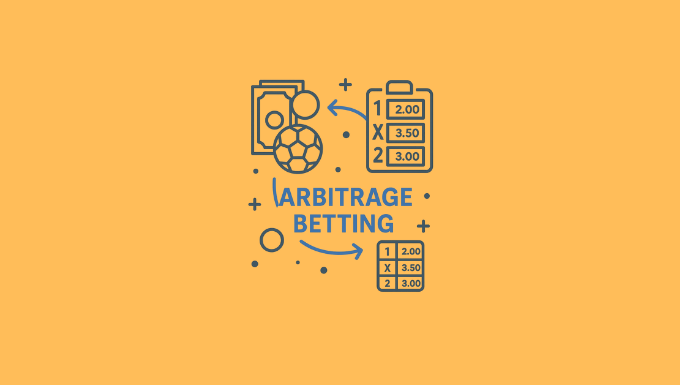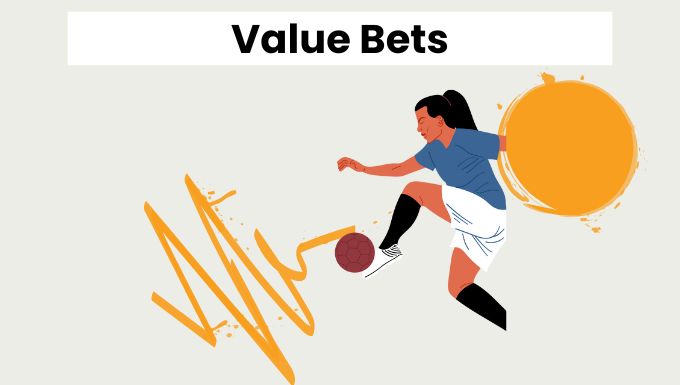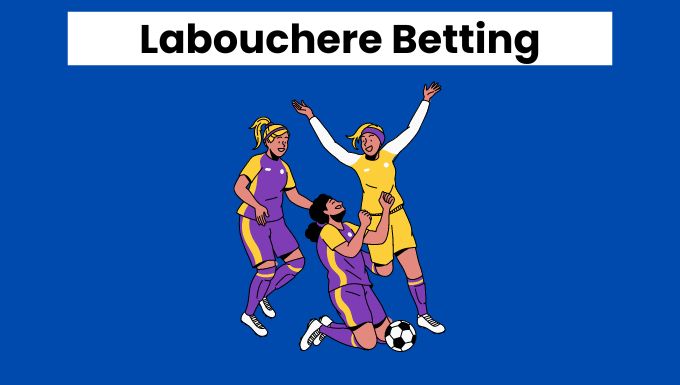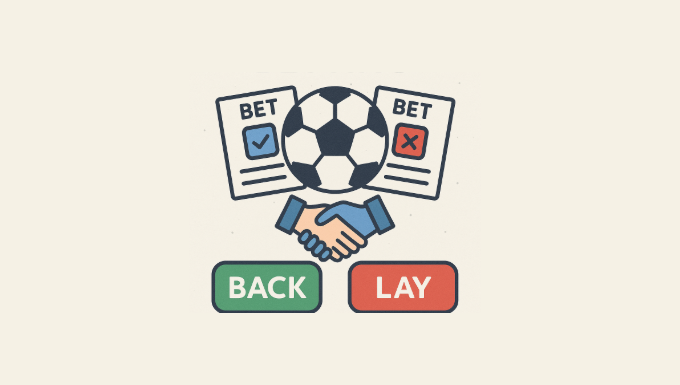When you’re betting, you’ve got two main options: traditional betting sites or betting exchanges. They both let you place bets, but they work in completely different ways. If you’ve only ever used bookies, an exchange might seem confusing at first. And if you’ve only used exchanges, you might wonder why people bother with bookies at all.
I’ve used both for years, and each has its strengths and weaknesses. Bookies set the odds, take your bets, and pay you if you win. But they also limit winning players, tweak odds to ensure they profit, and can be frustrating when they refuse to take big bets. Betting exchanges, on the other hand, let you bet against other people instead of the house. You can back or lay bets, get better odds, and avoid limits but you need someone willing to match your bet, and there’s a small commission on winnings.

So, which is better? It depends on how you bet. If you want simplicity and bonuses, bookies are fine. If you’re serious about value and long-term profit, exchanges are a game-changer.
How Bookies And Betting Exchanges Work
When I first dipped my toes into the world of sports betting, I was fascinated by how bookies and betting exchanges operate. It’s like stepping into a marketplace where predictions and probabilities are the currency.
Bookies, or betting sites, are essentially the traditional gatekeepers of betting. They set the odds for sports events, like football matches or horse races, based on their analysis and the likelihood of certain outcomes. When you place a bet with a bookie, you’re essentially betting against them. They aim to balance the books by adjusting odds to ensure they make a profit, regardless of the outcome. For example, if too many people bet on Team A, they might lower the odds to encourage bets on Team B. It’s a bit like playing chess with probabilities, and the house always has a slight edge.
Betting exchanges, on the other hand, feel more like a peer-to-peer marketplace. Instead of betting against a bookie, you’re betting against other people. Platforms like Betfair allow users to set their own odds or accept odds offered by others. It’s a bit like eBay for bets! You can also “lay” bets, which means you’re acting as the bookie and offering odds to others. This flexibility is what drew me in; it feels more dynamic and often offers better value than traditional bookies.
Odds And Value
Odds and value are everything in betting. If you’re not getting the best odds, you’re leaving money on the table. That’s where the difference between bookies and betting exchanges really stands out.
Bookies set the odds themselves, and they always build in a margin which is how they make a guaranteed profit over time. If a fair set of odds should be 2.00, a bookie might offer 1.91 or 1.95. That small difference adds up, and over time, it eats into your winnings. On top of that, bookies adjust odds based on how much money they take on each side, not just the actual probabilities, which can create poor value.
Betting exchanges work differently. The odds aren’t set by a company trying to profit from you as they’re set by other bettors. Since there’s no house edge, the odds are usually better. If a bookie offers 1.91, you might get 1.98 or even 2.00 on an exchange. The catch? Exchanges take a small commission on your winnings (usually 2-5%). Even with that, you often come out ahead.
Liquidity And Market Limits
Liquidity and market depth are two things you never have to think about with a bookie, but on a betting exchange, they can make or break your bet.
With a bookie, placing a bet is simple. You see the odds, decide how much to stake, and they take the bet (unless you’ve been limited). They don’t rely on other people to accept your bet because they act as the middleman, always offering a price.
Betting exchanges work differently. Since you’re betting against other people, there has to be someone willing to take the other side of your bet. That’s where liquidity comes in. If an exchange has high liquidity, there’s plenty of money available to match bets, and you can get in and out of positions easily. In big markets like Premier League matches or major horse races, liquidity is usually excellent, so you can bet as much as you want.
But in smaller markets like lower-league football or obscure sports, liquidity can be a problem. If there aren’t enough people offering bets, you might not get your stake matched, or you’ll have to take worse odds than you’d like. That’s where bookies sometimes have the edge; they’ll give you a bet even if nobody else wants it.
Betting Limits And Restrictions
One of the biggest frustrations with bookies is getting limited. If you’re a casual bettor placing small bets, you might never run into this problem. But the moment you start winning consistently, bookies will take notice and not in a good way.
Bookies don’t like profitable bettors. They prefer players who lose over time because that’s how they make money. If you’re sharp, betting on value, or even just using promotions too well, they’ll either restrict your stakes or close your account entirely. It doesn’t matter if you’re following all the rules-if they don’t like how you bet, they’ll shut you down.
Betting exchanges don’t care if you win. Since they make money through commissions rather than from losing bettors, they have no reason to limit you. You can win as much as you want, and your account will stay open. The only real restriction is liquidity-if there aren’t enough people offering bets, you might not be able to stake as much as you’d like.
Type Of Bets
The types of bets you can place at bookies and betting exchanges are similar in some ways but completely different in others. If you’ve only used bookies, you’re used to backing bets-picking something to happen, like a team to win or a player to score. Exchanges let you do that too, but they also let you lay bets, which means betting on something not to happen. That opens up a whole new way to bet.
With a bookie, your options are usually straightforward: singles, accumulators, handicaps, over/under, and so on. They also offer things like bet builders, which let you combine different outcomes from the same game. The downside? Bookies control the market. If they don’t offer a bet, you can’t place it. They also have the final say on odds and limits.
Exchanges work differently. Since you’re betting against other people, you can back or lay almost anything-as long as someone is willing to take the other side of the bet. That means more flexibility, but also some downsides. Liquidity (the amount of money in the market) can be an issue, especially on niche bets.
If you like accumulators or structured promotions, bookies are the better choice. But if you want more control over your bets-especially laying bets; exchanges give you options that bookies simply don’t.
Bonuses And Promotions
Bonuses and promotions are one of the biggest reasons casual bettors stick with bookies. They throw free bets, odds boosts, cashback offers, and loyalty rewards at you, making it feel like you’re getting extra value. And sometimes, you are, especially if you know how to take advantage of them.
Bookies offer things like “Bet ₦1,000 Get ₦3,000” deals for new customers, enhanced odds on big games, and regular promos for existing players. These can be great, but there’s always a catch. Free bets often come with rollover requirements, meaning you have to bet multiple times before withdrawing. Odds boosts might have max stakes so low they’re barely worth it.
Betting exchanges don’t rely on promotions to attract users. Their main selling point is better odds and no limits, so they don’t need to give out free bets to stay competitive. That said, some exchanges offer lower commission rates for new users or VIP programs that reward high-volume bettors with even lower fees.
Bookies and betting exchanges both have their place, and knowing when to use each one can make a huge difference in your betting success. If you’re after simplicity, promotions, and guaranteed bet placement, bookies are the way to go. They’re easy to use, offer plenty of bonuses, and don’t require you to find someone to match your bet. The downside? Odds are worse, and if you win too much, they’ll limit or ban you.
Exchanges, on the other hand, give you better odds, the ability to lay bets, and no risk of getting restricted. But they rely on other bettors to match your wagers, and you’ll pay a commission on winnings.


